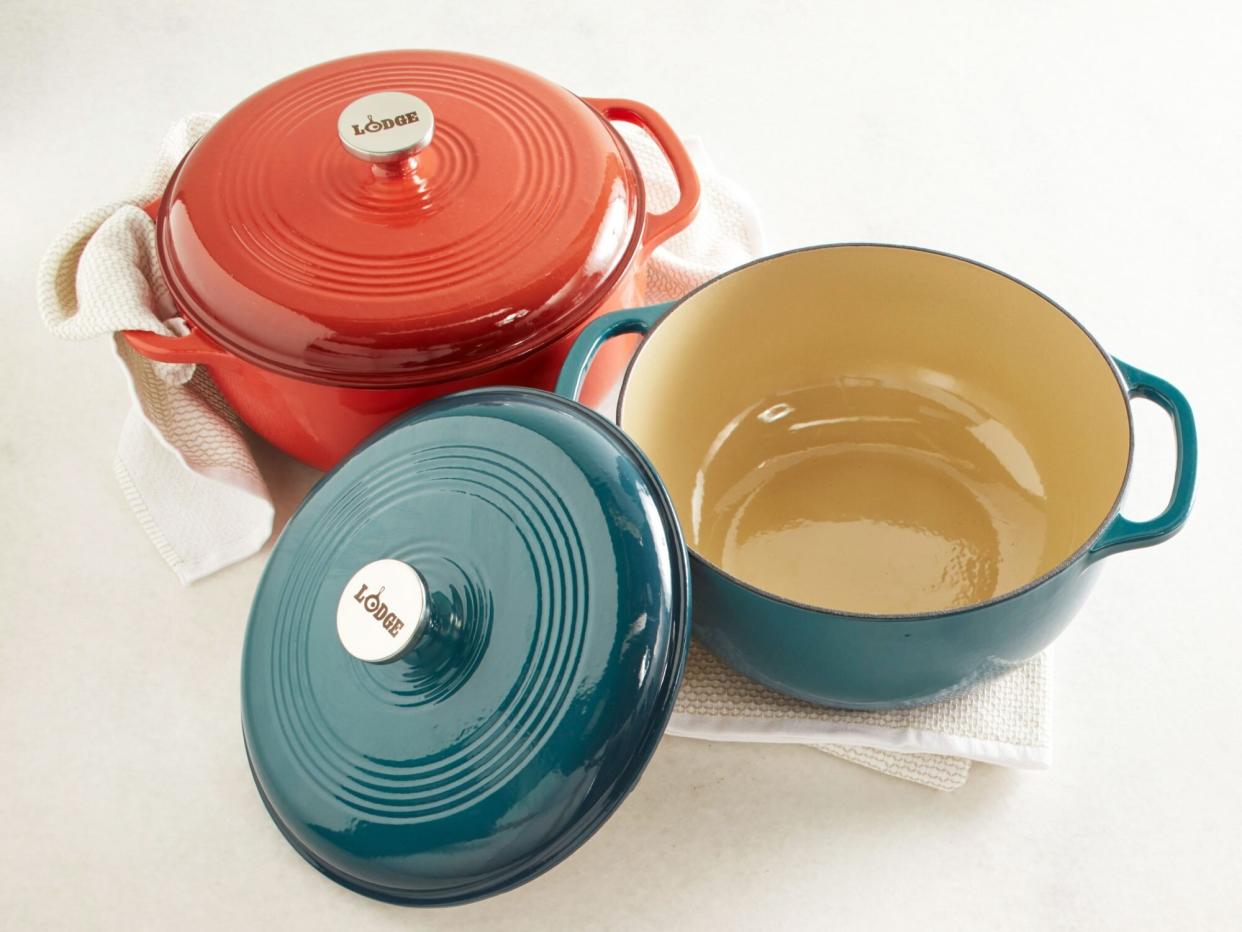10 Things You Shouldn't Do in Your Dutch Oven

Dotdash Meredith
An enameled cast iron Dutch oven can be one of the most versatile pieces of cookware you own, ready to simmer stew, bake a loaf of artisan bread, or deep-fry chicken. And whether you spring for a classic piece from a venerable brand like Le Creuset or stalk the aisles of your local discount store for a more affordable version, these large lidded pots are likely to become the cooking vessel you reach for most frequently. Taken care of properly, the durable pots will last you a lifetime, perhaps even becoming an heirloom to be passed on to the next generation of cooks.
Related: The Best Dutch Ovens to Buy Now
What Not to Do With a Dutch Oven
Even though a Dutch oven can be used to cook a plethora of different foods, with a variety of cooking methods, there are still a few no-nos when it comes to using and caring for your Dutch oven. Are you guilty of any of the following? If so, it's time to stop. Your grandkids will thank you!
1. Putting a hot pan in cold water
While Le Creuset's enamel is designed to be durable in most conditions, says Nate Collier, spokesperson for Le Creuset, "Thermal shock may still occur," which could cause the enamel to crack or flake off. In general, subjecting your Dutch oven to extreme temperature fluctuations can be damaging.
2. Using it in the microwave
Most Dutch ovens are made from cast iron coated with enamel. And as with any metal vessel, they shouldn't be used in the microwave. According to GE Appliances, the microwaves that cook the food can't penetrate metal, so food inside the pot won't be heated. And, more dangerously, metal can cause arcing—when electricity jumps from one connection to another—which is a fire hazard.
3. Using sharp utensils
Don't attempt to use a knife to cut up something in your Dutch oven or use a pointed utensil like a metal fork to stir the contents of your pot. These utensils can scrape and scratch the enamel finish. The best utensils to use in a Dutch oven are wooden, silicone, or heat-resistant plastic spoons and spatulas.
4. Using abrasive cleansers or scouring pads to clean
Collier says harsh, abrasive cleansers or metallic pads could damage the enamel finish. So how do you clean stuck-on gunk? He suggests filling the pan with warm water and letting it soak for 15 to 20 minutes before washing. Stubborn stuck-on residue can be scrubbed away with a nylon or similarly soft abrasive pad, or a nylon-bristled brush.
5. Cleaning with citrus-based cleansers
According to Lodge Cast Iron, citrus-based cleansers can dull the glossy exterior finish of their enameled Dutch ovens. This won't affect the quality or performance of the pot, but if you want your Dutch oven to look like new, stay away from lemony dish soap.
6. Cooking on a high-heat burner all the time
Reserve your highest heat setting for boiling water or reducing liquids like stocks and sauces. And don't preheat the pot on the highest setting, either. It is better to cook on a low or medium setting, and to heat the pan gradually. Cast iron will retain heat and will provide a uniformly hot cooking surface, even at lower temperatures, and foods will be less likely to burn or stick if the temperature is set at medium or below.
7. Cooking in a dry pan
You should always start your cooking with a liquid or a fat, and make sure it coats or covers the entire bottom of the pan before you turn on the heat. Also, make sure not to leave a pot unattended for too long—if a pot boils dry, it could permanently damage the enamel, says Collier.
8. Overfilling the pot with oil for deep-frying
Le Creuset emphasizes that to use Dutch ovens for deep-frying, the pots should only be filled with oil about one-third full. This will not only minimize splashing of hot oil but will also allow room for oil to rise when you drop in that chicken for frying. Be sure to keep the lid handy to quickly clamp onto the pot in case there is a flare-up.
9. Putting your Dutch oven away while it's still wet
It's best to wipe a Dutch oven completely dry with a clean dishtowel before putting it in a cupboard. This will prevent rust from forming on the rim of the pot, which is uncoated in many Dutch ovens.
To further prevent the rim rusting, Lodge recommends periodically rubbing a little bit of vegetable oil along the rim, which will seal it.
10. Using your Dutch oven to only make chili
If you only pull out your Dutch oven when you're about to make a pot of stew or chili for a crowd, you're missing out on the myriad cooking tasks this amazing vessel is capable of. Some even argue that a good Dutch oven is the only pot you need. So take good care of the one you've got, and it will serve you well for years to come!

